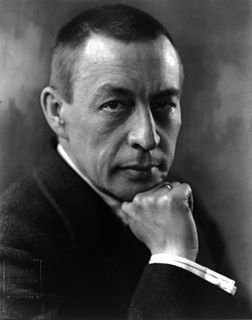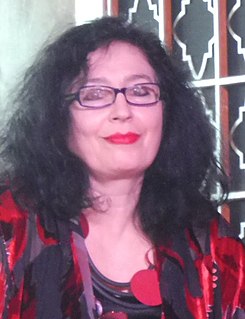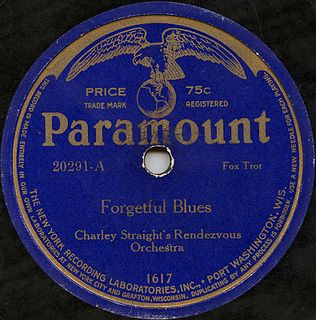Ragtime – also spelled rag-time or rag time – is a musical style that enjoyed its peak popularity between 1895 and 1919. Its cardinal trait is its syncopated or "ragged" rhythm.

Scott Joplin was an American composer and pianist. Joplin achieved fame for his ragtime compositions and was dubbed the King of Ragtime. During his brief career, he wrote over 100 original ragtime pieces, one ragtime ballet, and two operas. One of his first and most popular pieces, the "Maple Leaf Rag", became ragtime's first and most influential hit, and has been recognized as the archetypal rag.

Sergei Vasilyevich Rachmaninoff was a Russian composer, virtuoso pianist, and conductor of the late Romantic period. The influence of Tchaikovsky, Rimsky-Korsakov, Balakirev, Mussorgsky, and other Russian composers is seen in his early works, later giving way to a personal style notable for song-like melodicism, expressiveness and rich orchestral colors.
This is a list of notable events in music that took place in the year 1912.

Elena Kats-Chernin is a Soviet-born Australian pianist and composer, best known for her ballet Wild Swans.

Felix Arndt was an American pianist and composer of popular music. His mother was the Countess Fevrier, related to Napoleon III.

The "Maple Leaf Rag" is an early ragtime musical composition for piano composed by Scott Joplin. It was one of Joplin's early works, and became the model for ragtime compositions by subsequent composers. It is one of the most famous of all ragtime pieces. As a result, Joplin became dubbed the "King of Ragtime" by his contemporaries. The piece gave Joplin a steady if unspectacular income for the rest of his life.
A Prelude (music) is a musical form.

Charles Theodore "Charley" Straight was an American pianist, bandleader and composer. He started his career in 1909 accompanying singer Gene Greene in Vaudeville. In 1916, he began working at the Imperial Piano Roll Company in Chicago, where he recorded dozens of piano rolls. He became a popular bandleader in Chicago during the 1920s. His band, the Charley Straight Orchestra, had a long term engagement at the Rendezvous Café from 1922 to 1925 and recorded for Paramount Records and Brunswick Records in the 1920s.

George Linus Cobb composed over 200 pieces of music, including ragtimes, marches, and waltzes. He also wrote columns for music trade publications.

Eliza Aria is an operatic vocalise from the ballet Wild Swans, composed by Elena Kats-Chernin. The piece was first recorded by soprano Jane Sheldon and the Tasmanian Symphony Orchestra, and released on the ABC Classics label.

"Twelfth Street Rag" is a ragtime musical composition published by Euday L. Bowman in 1914. Years earlier, a friend of Bowman known only as "Raggedy Ed" declared his intention to open a strip club on 12th Street while the two were walking along it. Bowman is rumored to have said "If you get rich on those three balls, I'll write a piece on three notes to make myself rich." The result was "The 12th Street Rag," one of the most famous and best-selling rags of the ragtime era.

Thirteen Preludes, Op. 32, is a set of thirteen preludes for solo piano, composed by Sergei Rachmaninoff in 1910.
Wild Swans is a ballet by Meryl Tankard with score by Soviet-born Australian composer Elena Kats-Chernin.

"The Ragtime Dance" is a piece of ragtime music by Scott Joplin, first published in 1902.
Max Morath is an American ragtime pianist, composer, actor, and author. He is best known for his piano playing and is referred to as "Mr. Ragtime". He has been a touring performer as well as being variously a composer, recording artist, actor, playwright, and radio and television presenter. Rudi Blesh billed Morath as a "one-man ragtime army".
Russian Rag is the title of several pieces of music:
The Études-Tableaux, Op. 33, is the first of two sets of piano études composed by Sergei Rachmaninoff. They were intended to be "picture pieces", essentially "musical evocations of external visual stimuli". But Rachmaninoff did not disclose what inspired each one, stating: "I do not believe in the artist that discloses too much of his images. Let [the listener] paint for themselves what it most suggests." However, he willingly shared sources for a few of these études with the Italian composer Ottorino Respighi when Respighi orchestrated them in 1930.

Lyons and Yosco were an American vaudeville duo consisting of Italian American musicians George Lyons and Bob Yosco. They were called in one account "the finest pair of Italian street musicians playing in the Vaudeville ranks." They toured the United States from 1909 into 1923, doing a musical and comedy act. The News Journal of Wilmington, Delaware described their performance, saying they were "the best vocalists and instrumentalists of the street variety on the stage, proved intensely interesting, while their droll comedy kept the audience laughing much of the time."














